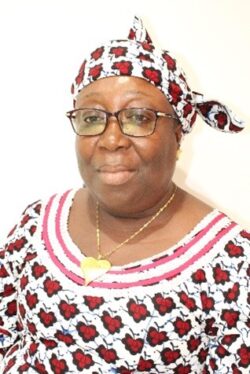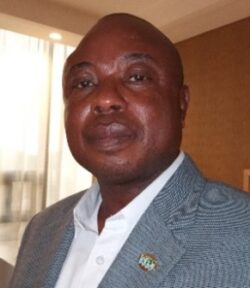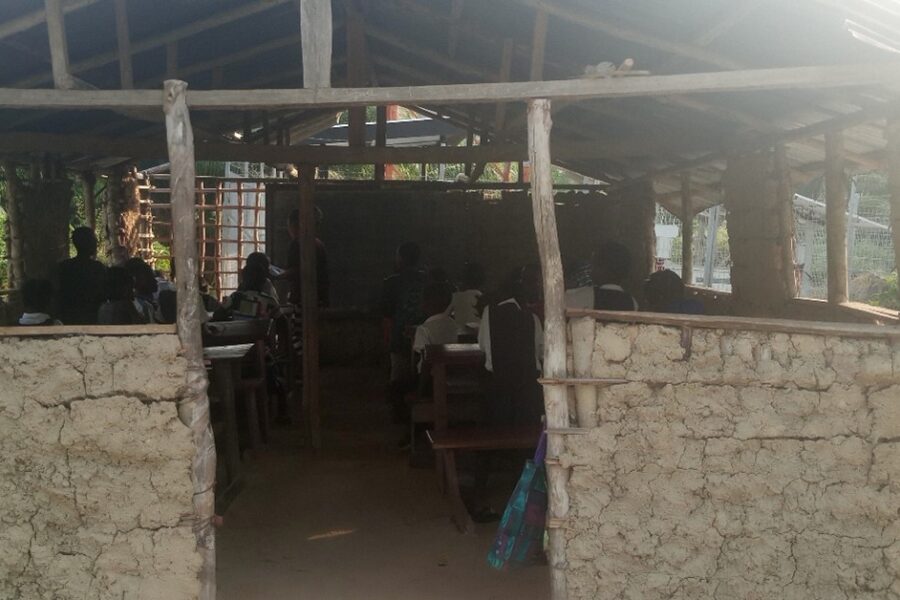Authors:

Dr. Cecelia Cassell- Dean at the Teachers College, University of Liberia

Gabriel L. Nelson, MPH, CDPM- Director of Early Childhood Education at the Ministry of Education, Liberia
The Liberian Together for Early Childhood Evidence (T4ECE) country task force team, under the leadership of the University of Liberia and the Ministry of Education recently created the country’s first catalog of public, private, community, and faith-based Early Childhood Education (ECE) centers, including components of structural and process quality.
In this blog, we hear from Mr. Gabriel Nelson, Director of Early Childhood Education at the Ministry of Education and Dr. Cecelia Cassell, Dean of the Teachers College at University of Liberia, as they discuss the T4ECE task force team’s experience in developing the catalogue and how they hope the data collected will be used to help focus and manage resources to improve the quality of ECE in Liberia.
Why did the Liberia T4ECE team decide to focus on the ECE catalogue exercise?
The team decided to focus on developing a catalogue of ECE programs because it would provide a glimpse of what exists in term of ECE program delivery across the country. Though the exercise focused on only three out of fifteen counties as a pilot, at this point it provides the Ministry of Education and implementing partners with a reference that can guide decision-making about allocation of funds for infrastructural and quality improvements in the participating schools/centers. The catalogue will guide the Ministry in identifying ECE schools/centers with specific needs in the areas of curriculum delivery and classroom interactions, indoor and outdoor facilities and conditions, teaching and learning materials, teacher capacity, etc.
Why was this important to Liberia?
It is important to note that the current Education Management Information System (EMIS) does not adequately address the ECD sub-sector data needs. Global trends promote holistic and integrated early childhood development (ECD) service delivery which cut across several sectors, including education. Nurturing the idea of setting up a mechanism for essential data management, sharing and usage among ECD sub-sector ministries and agencies, starts with supporting the Ministry of Education to strengthen its ECE-focused data collection capacity and understanding the availability of ECE programs around the country. The development of a catalogue of information on ECE is an important first step for the team.
The school mapping exercise was important because it discovered lapses in the data collection mechanism and pointed out the need to consistently update information. For instance, some school and centers that are in the EMIS database no longer exist. In addition to highlighting this need, the mapping also provided a description of ECE program types, physical infrastructure, the teaching and learning process, and some of the challenges faced at the school level.
What did your team hope to achieve with this?
The Liberian T4ECE team took on the task with the anticipation that the information generated through the development of this catalogue will be used to improve the quality of teaching and learning at the ECE level in Liberia. It is our hope that as the country continues to learn more about the status and current conditions of our ECE programs, opportunities may arise to leverage those data towards ongoing program improvement, capacity building, supporting the workforce and impacting child outcomes through data-driven policies and approaches.
Can you please give us an overview of the work that went into the ECE catalogue in Liberia and who has been involved?
A team from the Ministry of Education and the College of Education, University of Liberia co-led this work. These team selected and adapted items from the BEQI classroom observation and teacher interview guides. The tools captured the status of ECE quality and teaching practices in Liberian pre-primary classrooms. It looked at health and safety issues, teachers’ demographic information including education and training, classroom information including the use of play-based learning, class size, physical conditions such as lighting and ventilation, and outdoor facilities and conditions.
What was most interesting thing you learned in the process?
The team learned that there are virtually no play-based activities or practices being implemented in ECE classrooms that were involved in this project. We also learned that teachers in these classrooms were not adequately supported with resources to carry out their teaching duties. We know from research that teachers who provide opportunities for students to make choices in what they learn, how they carry on with the learning activities and are guided by said teachers arouse their students’ curiosity and prepare them for lifelong learning. Likewise, materials, stimulating classrooms and learning environment can contribute to what and how children learn, their growth, development and the choices or decisions they make in their future career. The lack of play-based learning practices, strategies and materials speak to the urgent need for ongoing support in these areas.
What if anything, was the most challenging aspect of this project?
The most challenging moment the team faced was accessing some of the most rural ECE schools/centers during data collection. Often the team had to travel long distances in complicated scenarios to access some of the ECE schools/centers. Receiving network coverage in these rural areas was also a challenge. Many times, enumerators had to locate particular spots where, if possible, could access network signal. This issue prevented the team from including GPS coordinates in the data collected, which was part of the original plan.
Could you share more about the catalog that you’re producing and how it will be used?
The catalogue will serve the Ministry of Education as a reference document in allocating funds for infrastructural improvement at the ECE level in the pilot counties. It will also guide the Ministry in identifying ECE schools/centers with specific needs in the area of training, indoor and outdoor facilities and conditions, materials and so on.
One of the primary interests of the Together for Early Childhood Evidence consortium is to understand how early childhood systems can better use data to improve young children’s early learning experiences. What is your vision for how data from this study will be used to improve Liberia’s early childhood system?
Our vision is to see data from this study serve as a guide for policy development that will improve ECE programming. We hope that the data can also be used for improvements and more focused practices in the teacher training institutions and ECE schools/centers, and also for scale up research. Our dream is to see the data from this study use to advocate for more funding in national budget for ECE programs across the country.
Moreover, it is the team’s hope that this exercise will be scaled up across the country and that information gathered from the Education Sector will form part of a larger ECD data management platform that compile and share information from other ECD services including health and wellbeing, nutrition, child/social protection, child justice, actions against child labor, parental and responsive caregiving, etc.
What advice would you give to other countries looking to map and gather quality data on early childhood classrooms?
Our advice is that other countries wanting to undertake similar studies should include school administrators and Education Officers as participants in their studies. This is the area where we realized that our study has some limitations. It is important that data collection be as relevant and comprehensive as possible by including key administrators who may provide information not readily available at the lower levels of the school hierarchy.
